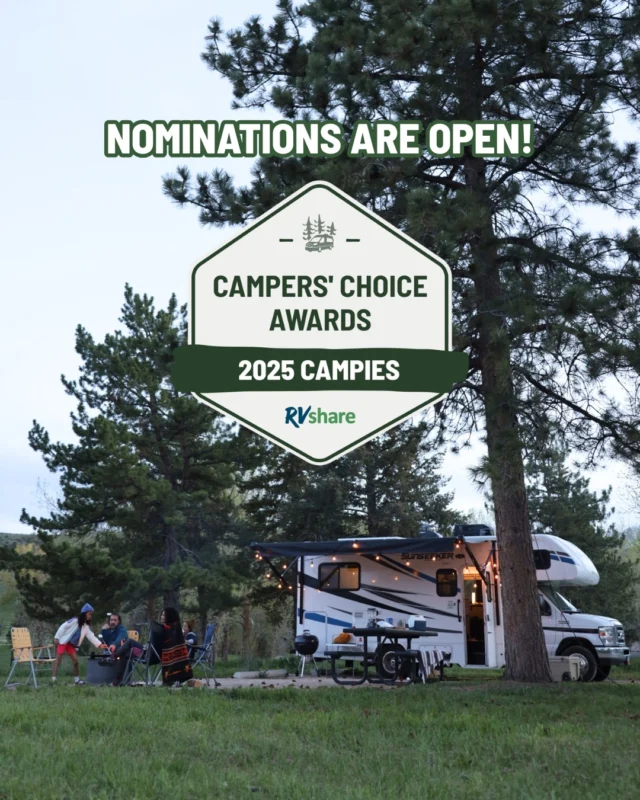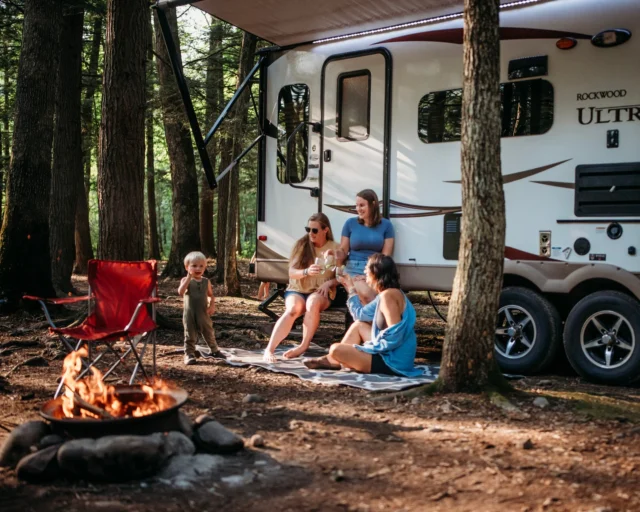
When you tell people you want to get off the grid, you invariably get some funny looks.
Are you some sort of doomsday prepper? Running from the government? I mean, heck, what kind of person wants to make it more difficult to access the internet?
But many of us in the RV camping world know how alluring it can be to get away from it all. Think about it: The hustle and bustle required just to keep up with everyday living. Managing the electricity, water, cable, and phone bill for a 1,500+ square foot house you’re too busy to enjoy; keeping up with the insipid progressions of celebrity gossip; even the incessant little red numeral indicating you’ve got even more Facebook notifications…
It’s overwhelming.
But if you’re looking to transition your lifestyle and find an off-grid home, your research might leave you scratching your head. Everything’s so well connected these days, it’s hard to find someplace to just go and live between the cracks, so to speak.
But that’s one reason RVing is so attractive to those of us who’ve had enough of contemporary life’s baggage. Going off the grid by RV camping is actually surprisingly doable. In fact, many modern RVs are designed with just that in mind, and set up with systems that simplify the process.
How to Live Off the Grid in an RV
Off-grid RV living is feasible, but you do need the right equipment for the job.
That’s why we put together this article, which will explain what features and options you should look for when shopping for a self-contained, off-grid-friendly motorhome.
We’ll also talk about what you need to know to find great dispersed camping, or “boondocking,” spots and how to live the lifestyle it takes if you’re really serious about living off the grid.
So, ready to get away from it all? Here’s the scoop.
Off Grid Camper
Almost all RVs come equipped with some dry-camping necessities, to allow campers to take on hookup-free camping trips (also known as dispersed camping or boondocking). Any RV you scope out is likely equipped with waste- and fresh-water holding tanks, and possibly even a generator.
However, most travelers aren’t planning on living off the grid for significant amounts of time, which means that certain systems can be upgraded to make off-grid camper trailer living easier.
For example, although many motorhomes come pre-equipped with a generator to produce electricity without hooking up to a grounded electricity source, installing solar panels is a better way to create sustainable, fume-free, and longer-lasting power. When your electricity is run by the sun, you don’t have to worry about going back into town to fill your propane tank!
However, keep in mind that there’s no way to escape “the grid” entirely. In other words, you’ll always need to return to a populated area to restock food, refill your water tanks, and dump your waste and trash. But being careful about using resources and learning to conserve water can really help extend the time you can stay out there in the wild.
You’ll also want to be sure to shop for an RV that’s well-insulated and prepared for all four seasons. It’s generally a good plan to move with the seasons, following temperate climes; not only will you avoid temperature-caused discomfort, but you’ll also save fuel you’d need to burn on air conditioning or heating. However, a well-insulated RV will keep you more comfortable in milder weather swings, and also generally bespeaks a higher vehicle quality all around.
Get Off the Grid
Once you’ve found an RV that is appropriate for off-the-grid living, or equipped a rig with portable solar power kits and other options to make your off-grid camping more doable, it’s time to figure out where to go.
This can be one of the most challenging parts of getting off the grid, as not every free-looking piece of land is actually an available campsite! In fact, it’s totally possible you’re on someone’s private, unmarked property and just don’t know it.
Finding RV boondocking locations is a bit of an art, and much of it has to do with finding good contacts in the community. Although there are many resources online to help you get started with finding free campsites, it’s always important to double-check with the BLM if you have any doubts as to whether or not a site is alright to camp on. The BLM will also be able to inform you of any camping rules and restrictions, such as how long you’re allowed to stay there before you’re required to move on.
Wherever you’re boondocking, always remember to be courteous and respectful to the land itself and other campers who might visit in the future. That means packing out everything you pack in, and avoiding starting fires outside of designated pits, collecting artifacts, dumping waste, or otherwise damaging the landscape and leaving it worse off than you found it.
Which RV is Best for Living Off the Grid?
There’s really no such thing as a “best RV” for off-grid living. It’s more about making sure you’ve prepared yourself and your rig for all the eventualities you might encounter out there on the road.
At a minimum, you need fresh water, food, and a toilet equipped with a holding tank; electricity will likely come in handy as well, unless you’re very rugged. (Even people who want to get away from it all can benefit from having a refrigerator!)
Also, make sure your RV is equipped with all the supplies you need, from cooking utensils to bedding, and also window coverings. Although shades and curtains might seem like a small concern, they can greatly affect the interior temperature of the coach, especially if you’re trying to avoid burning fossil fuels on running your air conditioning.
No matter where in the world you’re escaping to or how long you plan to stay there, being prepared will make your solitude that much more peaceful. Enjoy your break from this crazy world of ours!






